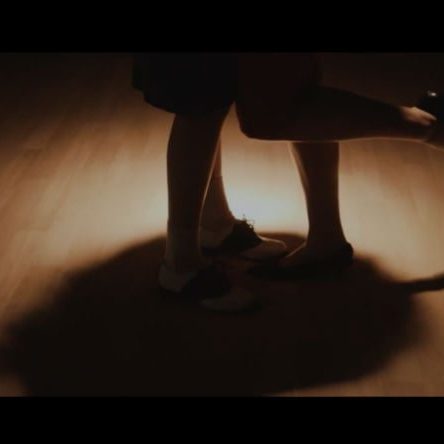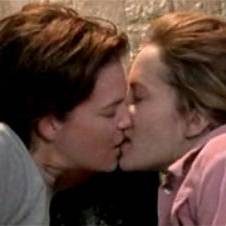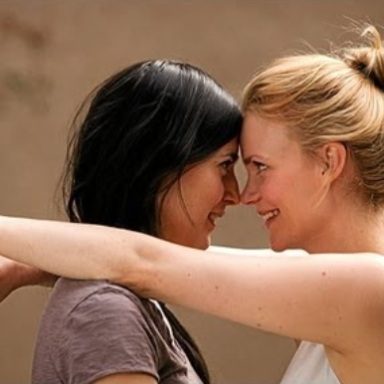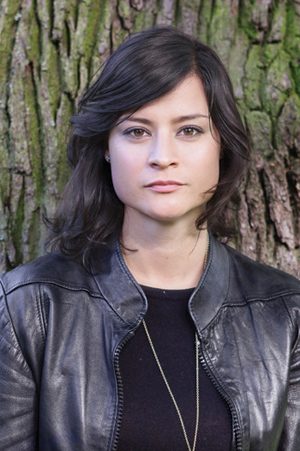
The Swedish filmmaker uses cinema to reflect her own true lesbian love story. Plus, find out how to stream the film now!
Swedish thespian Josefine Tengblad knows all about the magic of make-believe. She has acted in the theatre since the age of 6 and has worked for the production company responsible for Wallander and the Millennium Trilogy films starring Noomi Rapace. She recently started LeBox, her own production company.
As a producer and an actor in the Swedish film Kiss Me, Tengblad was interested in bringing her own experiences to the screen. If you enjoyed the plot of Imagine Me & You (2005), you will like this storyline—about a “straight” girl with a fiancé who falls for a lovely lesbian—but Kiss Me goes beyond clichés, mining Tengblad’s real-life romance for emotional resonance.
Kiss Me closely reflects your life. Was that something you wanted to do, going into your first film?
I met [screenwriter and director] Alexandra [-Therese Keining] and I just knew that I wanted to work with her. I didn’t know what, but I knew that I wanted to work with her. I told her that I had met this woman, and she said, ‘This is weird, but you have to read something that I wrote.’ So she gave me the treatment [for Kiss Me], which was 20 pages about this woman falling in love with her stepsister. When I read it, something happened. I was like, ‘This is what I’m going through. This is too much. This is strange. Why is this happening?’ It just felt cosmic. The second time we met, we were like, ‘We have to do this. We just have to do this movie.’
How closely did you work with Alexandra on the script?
We worked so closely on every scene. This was so much about talking about my process. I wanted it to be how I experienced it. We didn’t want to make the gay theme the only focus. We just wanted to tell a story about love and not do any political thing or try to change the world. We just wanted to tell this story about a person falling in love with another person.
You had a hard time finding producers for Kiss Me. How did you get your film financed?
Nobody wanted to do it, and it was because of the theme. The financers wanted to make it a comedy. They wanted to make Mia a lot more upper-class. They also wanted [Frida and Mia] to be younger, like 16 years old. I was like, ‘No, this is crazy.’ So I had to start my own company, which is quite tough. But in the end, it was the best thing I could ever do, because we then got full control and we could do whatever we wanted. That was so important. It was really tough, and maybe 20 times or 30 times me and Alexandra just sat down and said, ‘Is this the moment when we are going to give up? Are we going to stop now?’
How did you stay motivated? How did you keep going?
I think my absolute biggest motivation was that for me it was like pushing myself off a cliff because I knew that if I did this movie it was going to change my life.
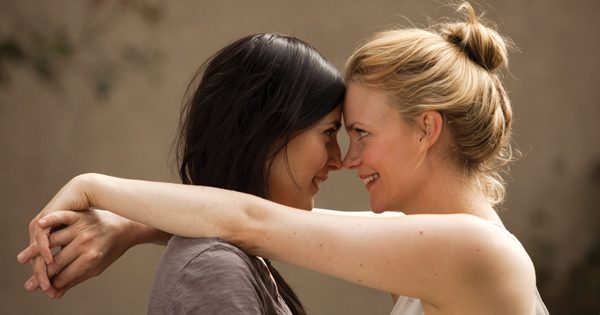
How so?
I was married to a man when I started doing it. And when the film was over, I had left him, and I was with a woman that I had fallen in love with.
Is it surreal to watch the finished film, which reflects the past five years of your life?
It is. I hadn’t seen it for one and a half years. When I saw it yesterday, I was just so moved. I’ve now been with my girlfriend for a year. When I saw it, I could smell it. I could feel it. And my whole body was like, Oh my god, what would have happened if I hadn’t made this journey? If I hadn’t done this film? I think I’d still be with my ex-husband because I don’t think I would have had that strength.
How has Kiss Me been received by the public?
It’s huge in the gay community. It’s been fantastic. And now I’m like this gay—what do you call it?—icon. It’s very weird, but it’s fun. It’s just wonderful. And I want to use that power to make my next film. It has to be a gay film. I really feel that, because I think it’s important. Why shouldn’t we?

